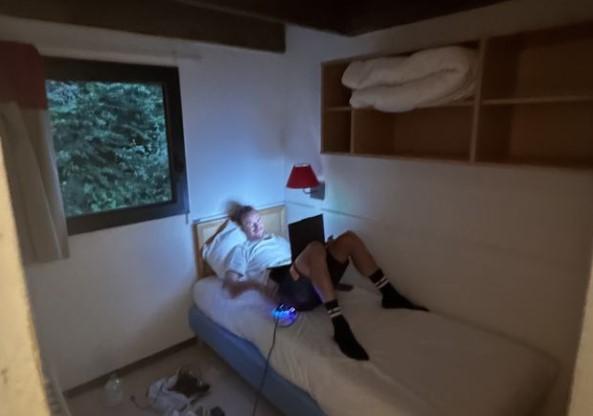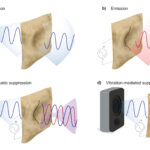The Tour de France is a grueling test of endurance, pushing cyclists to their physical and mental limits over three weeks. Each day brings new challenges, demanding immense strength, strategy, and resilience. To conquer this monumental challenge, riders rely on more than just training and talent; they need proper rest and recovery. A crucial element in this equation is the accommodation provided along the race route – hotels that serve as havens for these elite athletes to recharge and prepare for the next stage of the iconic cycling event.
This article delves into the world of Tour de France hotels, exploring their role in supporting riders’ well-being and performance. We’ll examine the specific amenities offered, the importance of dedicated team accommodations, and how sleep and nutrition contribute to a cyclist’s success on the road.
Tour de France Hotels
Hotels along the Tour de France route are more than just places to sleep; they are strategically chosen hubs designed to cater to the unique needs of professional cyclists. These establishments often boast spacious rooms, comfortable beds, and quiet environments conducive to restful sleep – essential for muscle recovery and mental rejuvenation after a day of intense racing.
The selection process for Tour de France hotels is meticulous, considering factors like proximity to the race route, availability of secure bike storage facilities, and the ability to accommodate large teams with specific dietary requirements. Hotels are often chosen based on their reputation for providing excellent service and catering to the needs of athletes.
Cyclist Rest and Recovery
Rest and recovery are paramount for cyclists competing in the Tour de France. After each grueling stage, riders need time to allow their bodies to repair muscle tissue, replenish energy stores, and prepare for the next day’s challenge. Hotels provide a sanctuary where cyclists can unwind, relax, and focus on their physical well-being.
Beyond simply sleeping, hotels offer opportunities for active recovery, such as access to saunas, massage therapists, and physiotherapy services. These amenities help reduce muscle soreness, improve circulation, and promote faster healing. The quiet and controlled environment of a hotel room also allows riders to mentally decompress from the intense pressure of competition.
Hotel Amenities for Riders
Tour de France hotels go above and beyond to cater to the specific needs of cyclists. They often offer specialized amenities designed to enhance rider comfort and performance. These can include:
Dedicated Bike Storage
Secure bike storage areas are crucial for protecting valuable equipment from theft or damage. Hotels typically provide dedicated rooms or spaces with controlled access, ensuring that riders’ bikes are safe and secure throughout their stay.
Nutritional Meals
Cyclists require a carefully balanced diet to fuel their intense training and competition. Tour de France hotels often work with nutritionists to create customized meal plans tailored to the specific needs of each team. These menus typically feature high-protein, carbohydrate-rich foods designed to replenish energy stores and support muscle recovery.
On-Site Physiotherapy
Access to on-site physiotherapy services is invaluable for cyclists dealing with minor injuries or muscle soreness. Hotels may employ physiotherapists who can provide treatments such as massage, stretching, and electrical stimulation to help riders recover quickly and effectively.
Dedicated Team Accommodations
Tour de France teams often require dedicated accommodations that cater to their specific needs. This might include:
Team Rooms
Hotels may offer spacious team rooms where riders can relax, socialize, and strategize together. These rooms provide a sense of camaraderie and allow for open communication within the team.
Team Meeting Spaces
Dedicated meeting spaces are essential for team managers and coaches to discuss race strategies, analyze performance data, and make adjustments as needed. Hotels often provide conference rooms or private areas suitable for these meetings.
Importance of Sleep and Nutrition
Sleep and nutrition play a crucial role in a cyclist’s ability to perform at their best during the Tour de France.
The Power of Sleep
Adequate sleep is essential for muscle recovery, hormone regulation, and cognitive function. During sleep, the body repairs damaged tissue, replenishes energy stores, and consolidates memories. Riders who get enough sleep are better able to focus, make strategic decisions, and recover from the physical demands of each stage.
Fueling Performance
Proper nutrition is the foundation of a cyclist’s success. A balanced diet provides the necessary carbohydrates, proteins, vitamins, and minerals to fuel intense training and competition. Cyclists need to consume enough calories to meet their energy requirements while also ensuring they are getting adequate hydration.
Conclusion
The Tour de France is a grueling test of human endurance, demanding not only physical strength but also mental resilience and strategic planning. While the race itself captures global attention, the crucial role played by hotels in supporting rider well-being often goes unnoticed. These havens along the route provide essential rest, recovery, and amenities that contribute significantly to a cyclist’s success. By understanding the importance of sleep, nutrition, and dedicated team accommodations, we gain a deeper appreciation for the intricate support system behind this iconic cycling event.



